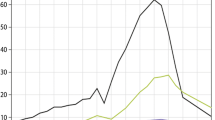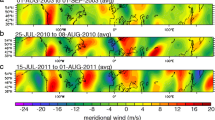Abstract
The economics of adaptation to climate change relies heavily on comparisons of the benefits and costs of adaptation options that can range from changes in policy to implementing specific projects. Since these benefits are derived from damages avoided by any such adaptation, they are critically dependent on the specification of a baseline. The current exercise paper reinforces this point in an environment that superimposes stochastic coastal storm events on two alternative sea level rise scenarios from two different baselines: one assumes perfect economic efficiency of the sort that could be supported by the availability of actuarially fair insurance and a second in which fundamental market imperfections significantly impair society’s ability to spread risk. We show that the value of adaptation can be expressed in terms of differences in expected outcomes damages only if the effected community has access to efficient risk-spreading mechanisms or reflects risk neutrality in its decision-making structure. Otherwise, the appropriate metric for measuring the benefits of adaptation must be derived from certainty equivalents. In these cases, increases in decision-makers’ aversion to risk increase the economic value of adaptations that reduce expected damages and diminish the variance of their inter-annual variability. For engineering and other adaptations that involve significant up-front expense followed by ongoing operational cost, increases in decision-makers’ aversion increase the value of adaptation and therefore move the date of economically efficient implementation closer to the present.
Similar content being viewed by others
References
Anthoff D, Tol RSJ, Yohe G (2009) Discounting for climate change. Economics: The Open-Access E-Journal 3:2009–2224
Arrow K, Lind R (1970) Uncertainty and the evaluation of public investment decisions. Am Econ Rev 60:364–378
Cropper M, Oates W (1992) Environmental economics: a survey. J Econ Lit 30:675–740
Evans DJ, Sezer H (2004) Social discount rates for six major countries. Appl Econ Lett 11:557–560
Evans DJ, Sezer H (2005) Social discount rates for member countries of the European Union. J Econ Stud 32(1):47–59
Federal Emergency Management Agency (FEMA) (1998) Homeowner’s guide to retrofitting: six ways to protect your house from flooding. FEMA doc. No. 312
Hallegatte S (2006) A cost-benefit analysis of the New Orleans flood protection system. Regulatory Analysis, AEI Brookings Joint Center for Regulatory Studies, 06-02
Heal G (2009) The economics of climate change: a post-stern perspective. Climatic Change 96: 275–298
IPCC (2007) Climate change 2007: synthesis report. In: Core Writing Team, Pachauri RK, Reisinger A (eds) Contribution of working groups I, II, and III to the fourth assessment report of the intergovernmental panel on climate change. IPCC, Geneva, p 104
Kirshen P, Knee K, Ruth M (2008) Climate change and coastal flooding in Metro Boston: impacts and adaptation strategies. Clim Change 90:453–473
Kolstad C (2009) Environmental economics, 2nd edn. Oxford University Press, Oxford, p 400
Ogura S, Yohe G (1977) The complementarity of public and private capital and the optimal rate of return to government investment. Q J Econ 91:651–662
Mansfield E, Yohe G (2003) Microeconomics, 11th edn. Norton, New York, p 714
Nordhaus WD (2007) Critical assumptions in the stern review on climate change. Science 317: 201–202
Rothschild M, Stiglitz J (1976) Equilibrium in competitive insurance markets: an essay in the economics of imperfect information. Q J Econ 90:629–650
Samuelson PA (1964) Principles of efficiency-discussion. Am Econ Rev 54:93–96
Stern NH (2008) The economics of climate change. Am Econ Rev 98:1–37
Stern NH, Taylor C (2007) Climate change: risks, ethics and the stern review. Science 317:203–204
Vickrey W (1964) Principles of efficiency-discussion. Am Econ Rev 54:93–96. 88–91
Yohe G, Neumann J, Ameden H (1995) Assessing the economic cost of greenhouse induced sea level rise: methods and applications in support of a national survey. J Environ Econ Manage 29:S-78–S-97.
Yohe G, Neumann J, Marshall P, Ameden H (1996) The economic cost of greenhouse induced sea level rise in the United States. Climatic Change 32:387–410
Author information
Authors and Affiliations
Corresponding author
Rights and permissions
About this article
Cite this article
Yohe, G., Knee, K. & Kirshen, P. On the economics of coastal adaptation solutions in an uncertain world. Climatic Change 106, 71–92 (2011). https://doi.org/10.1007/s10584-010-9997-0
Received:
Accepted:
Published:
Issue Date:
DOI: https://doi.org/10.1007/s10584-010-9997-0




